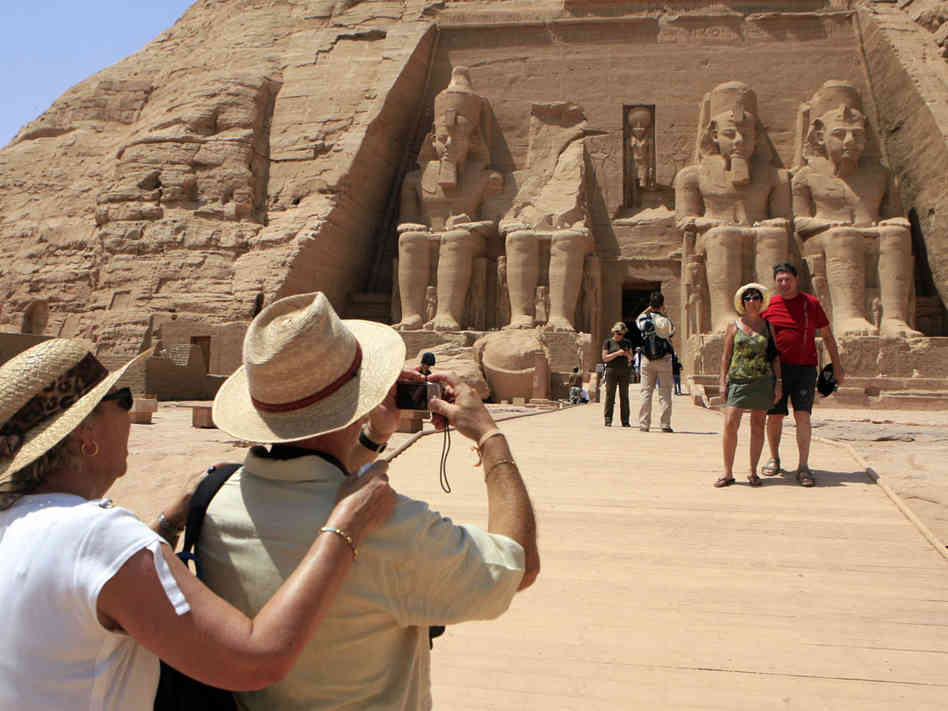 UAE-based energy company Dana Gas PJSC will invest $350m in Egypt over the next 2.5 years, on top of its normal operating costs.
UAE-based energy company Dana Gas PJSC will invest $350m in Egypt over the next 2.5 years, on top of its normal operating costs.
The investment comes after the company reached an agreement with the Egyptian government guaranteeing the latter would be paid any overdue debts.

(AFP photo)
1-1 Gas Pipeline HQ AFP
“This is just the capital investment, and of course we have an ongoing operating costs, and general overhead costs. So, the total commitment is significantly higher than $350m,” CEO Patrick Allman-Ward told Daily News Egypt in an interview on the sidelines of the Economic Summit in Sharm El-Sheikh.
Allman-Ward said the amount will be spent on “new wells and facilities, debottlenecking, which will increase the company’s production from our existing facilities in 2017 by about 170mn standard cubic feet of gas per day, by 5,000 barrels a day of condensate, and about 300 tons of LPG”.
Dana Gas produces an average output in 2014 was 68,900 barrels of oil equivalent per day, up 6% from a year earlier.
The decision to boost investment was made following last year’s gas production enhancement agreement signed between Dana Gas and the Egyptian government, he said.
Allman-Ward added that it was necessary “to convince the board of directors to invest on the back of a promise” from the government to pay overdue debts.
Amid political turbulence which has rocked the country over the past four years, Egypt’s debts owed to foreign oil companies accumulated. The government directed gas earmarked for sale in international market, pumping it in domestic grids to counteract shortages.
Explaining the GPEA, Allman-Ward said they “have agreed with the government, that we will take all the liquid components, our share and the government’s share, and we will sell that to the international market for hard currency”.
“For as long as we have overdue receivables for a period of six months, then the agreement will persist, and we’ll avail ourselves of this mechanism to receive our overdue debts,” he said.
Allman-Ward said he expected to be repaid by the end of 2018, if the government makes no more payments, and no additional bills crop up.
“We hope that we get paid, along with the rest of the sector, by 2016” as promised by the Egyptian government, he said, adding that the agreement serves as “insurance policy,” he said. “In the worst possible scenario, we get the money back by 2018.”
The Egyptian government’s last payment to Dana Gas, made in January and valued at $60m, has reduced the government’s debts to the company to $185m.
Egypt said in October it had repaid $1.5bn of the money owed to foreign oil companies, leaving $4.9bn outstanding which, it said in November, it plans to pay by May.
“The petroleum sector is more confident,” said Patrick, citing recent announcements made by UK’s BP and others as an indication of the market’s attractiveness.
On how Dana plans on financing its planned additional spending, Allman-Ward said the company had a “very good year” in 2014. It has $220m from their operations in Egypt, of which $120m will be “ring-fenced and be part of the capital that we will re-invest back into Egypt”.
He added: “It’s a very standard practice in the industry to make use of assets that are not specifically of use to the industrial sector.”
The additional funds from that will be ploughed back into their Egypt-based operations. He also explained that the new wells to be drilled, will be “phased out, and each treated as a separate of $5mn”.
The Sharjah-based company reported a net loss of $4mn in the last quarter of 2014, down from a profit of $128m a year earlier. The company blamed the loss on lower oil prices and a fall in the value of its oil and gas assets in Egypt.
While he expected revenues to be impacted by the reduction in oil prices, he says it will not be as big as other energy firms whose operations are solely focusing on oil production. Asked if a change in the company’s strategy, he said the company is cutting “unnecessary fat” in operational costs and overheads.



